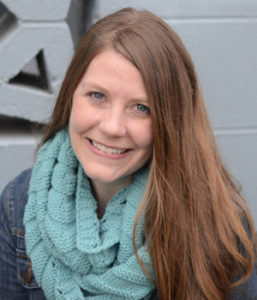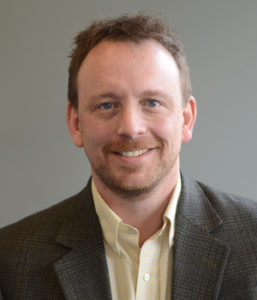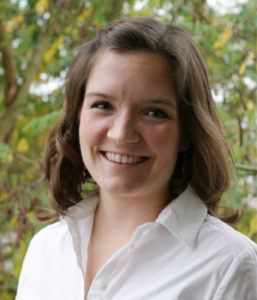Redeeming Food & Body, coming up on March 10-11, is a two-day workshop birthed out of a response to the impact of our fragmented, weight-obsessed, food-confused, disembodied culture. Facilitated by an interdisciplinary teaching team comprised of a mental health therapist, dietitian, and theologian, this workshop explores an embodied and restorative approach to our relationship with food and body. Here, we chat with the facilitators, Kate M. Sweet (MDiv ’13), Matt Tiemeyer, LMHC (MACP ’04), and Diane Summers, RD, CEDRD, about their passion for this event and what participants can expect from it.
This is your third year hosting Redeeming Food & Body. How has this gathering impacted your perspective and the ways you work? What keeps bringing you back to this conversation, and to this event in particular?
Kate: This work is very personal, and every time we meet a new group of people who come to the event, they inevitably bring new questions and thoughts, new perspectives. It continues to be a way that I dig deeper into my own story with food and body, and I continue to be challenged to live more fully into who I am. It’s very encouraging to me personally, as a minister and chaplain, to be able to come alongside people and explore this very important topic. You never know what beautiful stories will come out of what we get to do together.
Diane: I adore doing individual eating disorder nutrition work, sitting one-on-one with individuals, but there is a specific dynamic that happens when you’re in a room full of people fighting for freedom. While individual work is powerful, I think we do need to have cultural and communal shifts in regards to how we view food and body. Hosting this conference every year has been a powerful instrument that sparks within a community conversations about food and body that challenge the cultural norms.
Matt: I come back to this event because we’re just not talking nearly enough about how we as Americans, as people, certainly as Christians, view our bodies as our enemies and food as dangerous. And I love to watch freedom break out. To be able to do that in a group context is a significant privilege. I’m still hungry for freedom myself, and being with people in this context reminds me of how desperate many of us are in this area and how pervasive the issues are. It’s a privilege to work in it.
Mealtimes are vital parts of the rhythm of the weekend. What are those times like, and why are they such a central component?
Diane: I’ll start out by speaking to the schedule of meals, for those who are curious. We will have breakfast options available both mornings, then morning snacks and afternoon snacks available. On Friday, participants will be going out to lunch. That’s a chance to take what you’ve heard thus far out into the community. Then on Saturday, we will be dining together. This is a celebratory meal, a chance to experience nourishment together as a family that’s walked through the weekend together, and also a chance to, even on a deeper level, play out some of the new concepts of freedom and intuition and presence and playfulness with food. There will be plenty of choices, so taste preferences and other preferences that might need to be honored will have space.
Our hope is that food can be seen as a joyful experience versus intimidating or fearful. They’re very casual, so for those who may be a bit intimidated or worried about the meal experience, they’re casual and safe. No one’s gonna be watching or critiquing or analyzing. We’re all just gonna be dining together and enjoying the presence of each other and the nourishment of delicious food.
Matt: We have such a profound ambivalence around eating, and some of the people who come will tend not to eat with others in their normal lives. So there’s a bit of challenge in that for them about what would it be like if you could enjoy in community? Not everybody does that. Not everybody enters into their eating with a sense of mindfulness about what’s going on, and this is a chance to be able to do that in a much broader context, but one that’s safe as well. I see it as a counter-cultural experience to be able to eat when we all know we’re focused on eating and we’re not sitting in shame in the midst of it.
Kate: The only thing I would add is just the hope for some freedom and self-directedness in eating. You can choose, you’ll be able to choose whatever you want to eat. That might feel new to some people, and it might be a little bit scary, but we also hope it can be joyful and that we can have that freedom together. We are just hopeful that it will be an integral part of the learning for the weekend, but also an enjoyable thing to do together.
The small groups are another part of what makes Redeeming Food & Body unique. What can people expect from those times, and why are they important to help people engage this conversation?
Matt: Generally, as we present the material that we bring, most of the time it is so fresh, so different from what people experience, that it takes some processing time to be able to metabolize what it all means. There a lot of ramifications to live into this kind of freedom. If you just sit in a chair and hear what other people have to say about it, but don’t get embedded into a community that wants the same, it can be hard to carry that forth into your life. We would prefer not to leave people in that situation if we can, so we’re excited to let people talk about what it’s like to hear what we have to say, how it might apply to their worlds, what fears they have.
Kate: It will be a facilitated community, so you’re not just left to fend for yourself. We have wonderful process group leaders who have all been through this before, and they’ll be there to facilitate the discussion so that it’s a safe place to share what you’re experiencing and what your thoughts and feelings are. And really, from what people said last year, it was one of the most important parts of the whole experience. As Matt said, it really allows participants to dig deeper for themselves and think about how the material might apply to them and the work that they do in the world.
Diane: We need each other in this work. Healing always happens in a relational context. So that’s our hope with these small groups that are led by very seasoned therapists in the realm of food and body. You can bring as much or as little as you want of yourself and your history and your story to the small group.
I would also say, too, this event is open to clinicians and practitioners, students, laypeople, those in recovery, those wanting to support others who struggle with food and body. In the end, this is a realm that impacts everyone who is a part of our culture. So the playing field is very even and equal when it comes to having been a person in this culture and what that means in terms of what you’ve experienced and what you might bring to the small group context. So we’re hoping to capture a broad variety of people, knowing we all come having absorbed and taken in a lot of harm from the culture and desiring to break out and find freedom. So we hope you’ll join us this year for Redeeming Food & Body, March 10-11 at The Seattle School. We look forward to seeing you!
About the Facilitators

Diane Summers, RD, CEDRD
Eating Disorders Dietitian at Hope Nutrition Therapy
Diane Summers is a registered dietitian treating the full spectrum of eating disorders, including chronic dieting, night eating, and orthorexia to the more commonly referenced struggles of anorexia and bulimia nervosa. She graduated from Seattle Pacific University in 2002 and subsequently completed her clinical nutrition internship through the University of Washington in 2003. Diane has worked at the intensive inpatient, residential, partial, and outpatient levels of eating disorder care, in the sacred process of returning individuals and families to a more nourishing relationship with food. In addition to client work, she comes alive at the opportunity to provide training on the art and science of eating disorder nutrition therapy. She has a deep passion for conversations that work to shift the insidious cultural norms of weight stigma and the thin ideal. Diane maintains a private practice north of Seattle, Hope Nutrition Therapy. Outside of her nutrition work, Diane enjoys traveling, hiking, beach combing at low tide, and cooking at a local women’s shelter.
Kate comes to this work with a passionate belief that the Gospel invites us to live with freedom and peace in the relationship with our bodies and food. Kate studied psychology at the University of Wisconsin, and went on to receive a Master of Divinity from The Seattle School in 2013. She continues to be fascinated by the intersection of the human psyche and theology. She currently serves as a hospital chaplain at The American Center in Madison, WI and as the Director of Discipleship at People’s United Methodist Church in Oregon, WI. Kate is ordained in the Christian Church (Disciples of Christ). As a minister, she seeks to invite others to encounter God’s love as it is revealed through the embrace of all of our embodied experience. In 2015, Kate and her family relocated back to her hometown of Madison, Wisconsin. These days she especially enjoys exploring the world with the playful presence of her young son as a guide, reacquainting herself with the Midwest, and sharing delicious meals with family and friends.
Matt T iemeyer, LMHC
iemeyer, LMHC
Eating Disorders Therapist at Blue Harbor Counseling
Matt Tiemeyer is a husband, father, therapist, and reluctant/occasional writer. Matt left a software development position in the Midwest in 2002 and earned his MA in Counseling from The Seattle School in 2004. He and his wife, Shelly, have a private counseling practice in the Seattle area. Matt has worked with clients struggling with eating disorders since 2004 in outpatient clinics and private practice settings. He has been a group facilitator for various workshops with The Allender Center since 2009, joining formally as a Fellow at The Allender Center in 2013.
Matt is devoted to engaging the interplay of grief and gratitude as they enhance each other to form us more honestly and beautifully in the image of God. He intentionally pursues the dynamics that often occur apart from our awareness of our relationships with our physical bodies to create paths for blessing and room for the gospel. In addition to his work with eating disorders, Matt’s work as a therapist includes helping men and women move toward healing from sexual abuse and freedom from sexual addiction.


